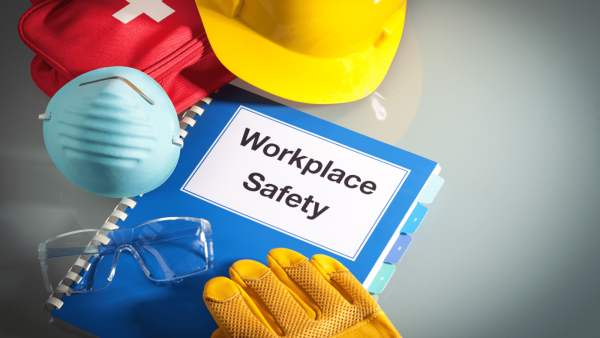health and safety news
The largest forklift operator training website in the world
![]()
![]()
First aid advice during Covid crisis from HSE

The Health and Safety Executive have provided advice for first aiders to follow in non health care settings some of which is reproduced below.
This guidance will help employers ensure first aiders are confident that they can help someone injured or ill at work during the coronavirus (COVID-19) pandemic.
Employers and their first aiders should take account of the specific guidance on giving cardiopulmonary resuscitation (CPR) from the Resuscitation Council UK.
Check your first aid needs assessment
As an employer, when reviewing your risk assessment to include working during the pandemic, consider refreshing your first aid at work needs assessment. Ask your first aiders if there are any factors that should be taken into account as part of your risk assessment, for example vulnerable workers with first aid responsibilities. You should discuss the risk assessment with your first aiders so they are confident about providing the right assistance. This includes knowing what equipment they can use to minimise risk of infection transmission, as explained below.
Guidance for first aiders
Try to assist at a safe distance from the casualty as much as you can and minimise the time you share a breathing zone. If they are capable, tell them to do things for you, but treating the casualty properly should be your first concern. Remember the 3P model – preserve life, prevent worsening, promote recovery.
Preserve life: CPR
- Call 999 immediately – tell the call handler if the patient has any COVID-19 symptoms
- Ask for help. If a portable defibrillator is available, ask for it
- Before starting CPR, to minimise transmission risk, use a cloth or towel to cover the patient's mouth and nose, while still permitting breathing to restart following successful resuscitation
- If available, use:
- a fluid-repellent surgical mask
- disposable gloves
- eye protection
- apron or other suitable covering
Only deliver CPR by chest compressions and use a defibrillator (if available) – don't do rescue breaths (for CPR in paediatric settings see specific guidance from the Resuscitation Council UK)
Prevent worsening, promote recovery: all other injuries or illnesses
- If you suspect a serious illness or injury, call 999 immediately – tell the call handler if the patient has any COVID-19 symptoms
- If giving first aid to someone, you should use the recommended equipment listed above if it is available
- You should minimise the time you share a breathing zone with the casualty and direct them to do things for you where possible
After delivering any first aid
- Ensure you safely discard disposable items and clean reusable ones thoroughly
- Wash your hands thoroughly with soap and water or an alcohol-based hand sanitiser as soon as possible
Annual refresher training
If first aiders are unable to access annual refresher training face to face during the coronavirus (COVID-19) pandemic, HSE supports the use of online refresher training to keep their skills up to date.
HSE still strongly recommends that the practical elements of actual FAW, EFAW and requalification courses are delivered face to face, so that competency of the student can be properly assessed.
Interrupted first aid training
If because of coronavirus you cannot complete training for your first aid qualification within the usual timeframe, training can restart at a later date as long as:
- a full recap of training delivered before the interruption is done before moving onto undelivered modules
- the training provider is content that you can show:
- a full understanding of all aspects of the course content
- the knowledge required and competencies at the end of the training